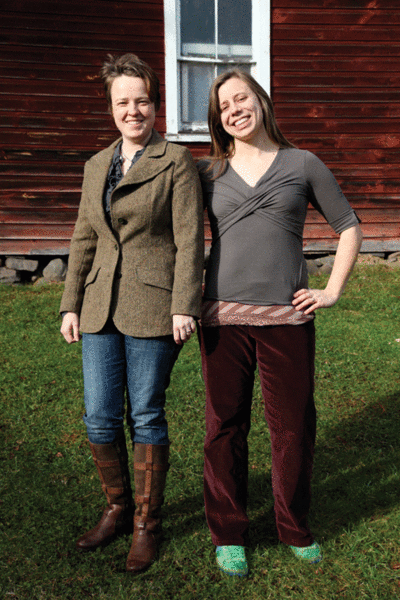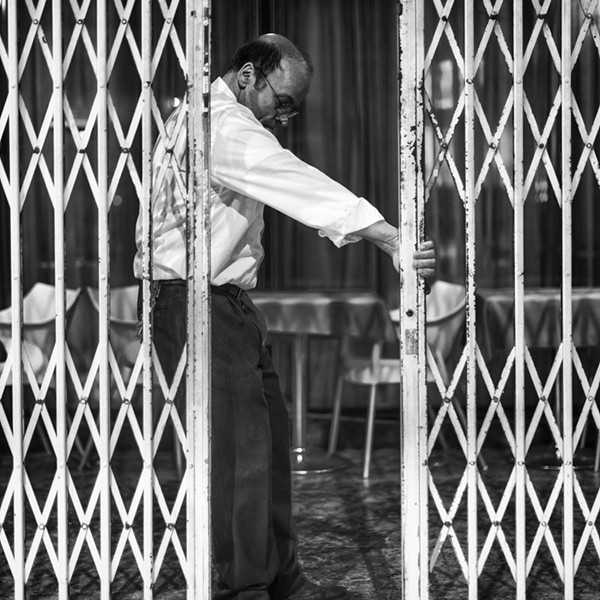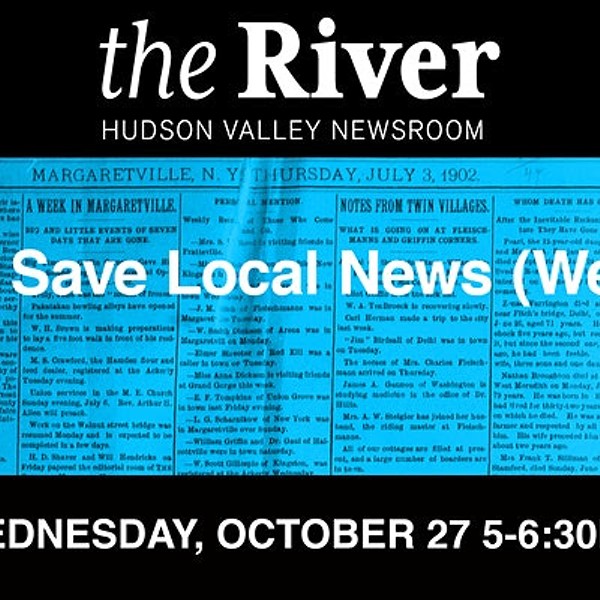Local Luminaries: Lissa Harris and Julia Reischel
[]
The Watershed Post, an online newspaper or “news hub” covering news and events in the Catskill region counties of Delaware, Ulster, and Greene, went live on January 18, 2010. Current unique monthly visitors: 20,000. Visitors on Sunday, August 28, 2011, when Hurricane Irene swept into the region: 60,000. The 10 days after the flood, the Watershed Post ran a continuous live blog—visited by 80,000 people—and fielded about 10,000 comments and posts from readers. The Watershed Post staff: two. Post Irene, Lissa Harris and Julia Reischel appeared live on Democracy Now, CNN, and WNYC. Many more media outlets from around the nation and the world contacted them for information. In October, the Post was awarded “New Business of the Year” by the Delaware County Chamber of Commerce for their flood coverage.
Veterans of the Boston media scene—Reischel has a degree from Harvard, Harris a masters in science writing from MIT—and partners in real life, they married in Boston in 2009, the same year that the New York Times threatened to shutter the Boston Globe. Reischel and Harris credit the implosion of the journalism scene for prompting them to strike out on their own. Harris’s Catskill heritage combined with the region’s need for local news inspired them to create the Watershed Post, with a mission to be “indispensable and useful but not a chore.” Taking just one year from concept to realized live site, Harris and Reischel modeled the Post after another successful online newspaper, Universal Hub, run by Adam Gaffin, a personal friend and the Post’s website designer. In addition to researching and writing original stories, the Harris and Reischel curate the news for the site by keeping track of news sources from around the Catskill region, including four daily newspapers, dozens of weekly newspapers, scores of blogs, and hundreds of Facebook and Twitter accounts. Harris and Reischel then write short posts about the new stories pertinent to the whole Catskill region, often quoting from the sources, adding original reporting, and always with attribution. While sometimes deemed controversial by the lions of journalism, (the former managing editor of the Washington Post recently referred to it as content theft ) news curation or aggregation is an increasingly essential method of news reporting for a small editorial staff attempting to bring local news to small towns in rural areas.
Why is news aggregation controversial?
Harris: It is not really something that the large lions of news organizations typically do. We are a window into the media landscape locally. We fill in the gaps for towns with no newspapers. Although there are four dailies in our five-county region, all of them are at the very edge of our territory, organized around cities and more populated areas. The Catskills, a large rural area with significant natural resources, is environmentally important. No daily serves the whole territory.
The Phoenicia Times and the Olive Press folded in 2010. Do you see the Watershed Post filling the need? Are the readerships the same for hard-copy news and digital news?
Harris: The first time the New York Times wrote about us was because [New York Times “Our Towns” columnist] Peter Applebome saw our little obituary online about the Phoenicia Times. He was taken that an online newspaper was sad for the demise of print newspapers. We’re not jazzed abut print going out. Print and online readerships are not the same. There is some overlap, but people read differently online, in more varied ways. Facebook lets people see what their friends are reading. Follow a link and before you know it, you are reading a magazine you have never heard of.
Reischel: Readership of online news is bigger than print because Facebook and social media outlets make it easier to pass around links. Readership is there. Appetite for interesting news is bottomless.
What was life like at the Watershed Post during Irene?
Harris: Our apartment in Andes was never out of power—and, amazingly, our Internet connection stayed open, thanks to luck and the hard work of the Margaretville Telephone Company. So we never had to relocate to get power. We prepared for a possible power outage by launching a live blog session and inviting multiple people, journalists and nonjournalists from around the region, to help us keep it updated in the event that we lost power. That live blog stayed live for 10 days straight and was updated 24 hours a day for the first few days of that. It took a team of about 15 volunteers to keep it going. We also published about 20 posts a day during the ten days after the flooding. Nether of us really slept.
Describe a typical day for you at the Watershed Post.
Harris: Honestly, we sit here at our laptops fueled completely by endless pots of PG Tips with milk and sugar. We comb various information feeds, e-mails, newspapers, and stuff coming in from State Police, work on our original stories. Julia spends more time on ad sales. I spend the morning in my pajamas. We work a lot but don’t go anywhere. Our commute is downstairs to the living room.
Reischel: I’m in bed at 8pm and up at 5am. Load the woodstove, make tea, and start reading gazillions of e-mails, scan local headlines, write gazillions of e-mails, take the kid to daycare, look at the terrifying list of things to do, book radio guests for our weekly radio show, Google webchat meetings, schedule interviews and remote handling with ad work in front of computer. There are breaks to breathe the air, feed the cats, hang the laundry. It’s wonderful but the stress level is shockingly high. Every time we can’t do something, we feel like we‘re letting readers down, which we don’t want to do.
Any words of advice to others in rural communities—neighboring or far flung?
Harris: Start doing it. Live cheaply, and see how long you can hang on. Once you build something your community values, the community will begin to support you with advertising. Also, make sure that you find good people to work with you—you’re going to need help. And stay loose and open to invention—this world changes fast and you need to change fast with it. Finally: Be willing to collaborate. Help comes from truly amazing and unexpected quarters, and you want to be ready to accept it when it comes.
What does the future hold for the Watershed Post?
Harris: We hired a part-time managing editor, Andrea Girolamo. We have no predefined notion of how big it should be, although I know from looking at the territory what it deserves—15 or 20 people.
Reischel: We are cash-flow positive. At $15,000 in revenue this year, it is not enough for our salaries—more of an honorarium. We need to hire ad sales staff. I think it can make $50,000 to $100,000 a year. So we grow it or go back to a big city licking our wounds and get out of journalism. The bar to entry is zero. The bar to entry to producing high-quality journalism while making enough money to live—nobody knows where that bar is.

















